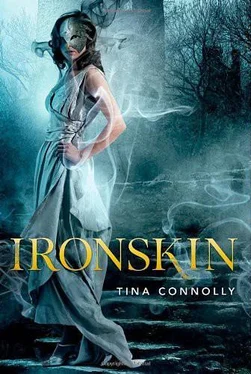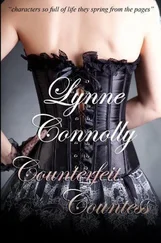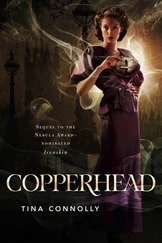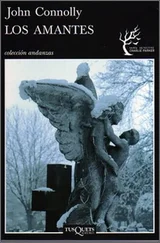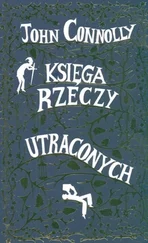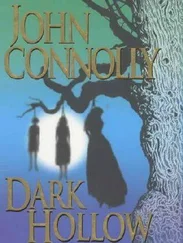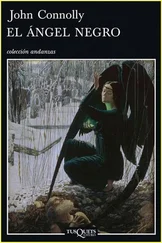It was the blackest hour of the night before she felt it.
Like Helen had said, that chittering under the wallpaper, and more, Jane thought, a sense of a growing storm, of funnel clouds in the nice fine ballroom, of that moment when every hair on your arms stands up and is electrified by the sky.
A fey in the house, that house without iron.
She felt it and suddenly the blue-orange blur seemed to be everywhere, homing in on the pretty ladies, the women with masks. The fey swooped back and forth, and suddenly there was blue in front of her eyes, and she was under attack.
But this fey was not the Fey Queen.
This was some ordinary fey, and she was pale in comparison with the Queen’s heat, and she was weak in comparison with the Queen’s murderous rage.
The fey beat against Jane’s face, and Jane, feeling less and less like a victim, drove it back with the satisfying beat and thump of squashing an insect. It fell away, rattled. Left for an easier target.
She looked up and into her current dance partner’s eyes with fierce triumph, and then saw where the fey went next.
Helen.
The fey was drawn to her like she was a flame, a beacon. Its orange-blue light swallowed up the air around her and behind that masky blush of perfection Jane saw Helen’s eyes scream.
Helen beat at the air, but that didn’t matter to the fey. She screamed, which mattered to Jane. No, that wasn’t just Helen screaming, it was Jane as well, shouting, “Fight back, fight back,” and then thumping on Alistair’s arm and saying, “Do something, damn you!”
He folded, blubbering. “I can’t, you don’t understand, I can’t.”
The last time she stepped between a fey and her brother, she sacrificed half her face. And her brother still lay dead of fey shrapnel on the black ground, and the only thing Jane could do after it was all over was stab a feyjabber into his heart and drive the fey out. And then her sister had resented her ever after, for daring to do what Helen could not.…
All that whirled through her head in an instant as the blue-orange light darkened with intent, whisked through Helen and into her. The other swirls of blue flicked outward and dissipated.
The light died in Helen’s eyes, flickered up pale and glassy—but it was patently no longer Helen. Edward had said that by the time Poule extracted the fey from Blanche she was an imbecile.
But maybe Poule hadn’t been fast enough.
Jane moved into that open space around Helen, fingers coiling around the feyjabber in her pocket.
Blanche Ingel had been occupied for five or six hours before Poule jabbed her wrist. Whereas Dorie had only had a fey inside her for less than a minute, and she’d recovered.
Jane plunged the feyjabber into her sister’s forearm, driving it into the vein. Helen shuddered, her eyes rolling back in her head. Dark red blood welled up around the spike.
And then, a noise like shrieking, only inside her head—and from the looks of it, the guests heard it too. Fey death, she knew, though she had not felt it in five years.
Helen fell to her knees, slumped to the floor. Her iron-stuck arm fell limply to the side, but the crazed look in her eye died away, and her eyelids closed as if in sleep, exactly as Dorie’s had in the forest.
Jane prayed Helen would also wake as Dorie had, but she couldn’t stay to find out.
“Don’t stand there,” she shouted to the rest of the party. “Find iron, protect the others! Send for a doctor! And you,” Jane commanded Alistair. “Bind her arm above the wound and don’t remove the spike.” He was stunned, and he looked as though he was an instant from weeping, as soon as he processed the shock. Jane stooped and, clamping her thumb onto the vein in Helen’s arm, repeated her orders to one of the more capable-looking servants.
“Helen,” he murmured. “My little Helen.”
Jane took his hand and placed it on Helen’s arm. “Hold tight until they return,” she said, and he looked through her with scorched eyes, but nodded, and held.
“Don’t leave us,” he said, but Jane stood and looked down at him, huddled over her unconscious, fey-beautiful sister.
“Stop all the doors in your house with iron,” she said. “Bar all the windows. Don’t let anyone beautiful enter or leave.”
Poule drove like a maniac. Jane hung tight as the old motorcar whipped along narrow bumpy lanes and tried to reassure herself that the dwarvven were mechanically clever. The car was practically an extension of Poule, for all that the short woman was sitting on a tufted cushion and had put on special driving shoes with soles as thick as Jane’s outstretched fingers.
The house was dark when they reached it. It was well past dawn, and yet the grey fog clung to the moor, wrapping the house in smoke.
“After Nina, the party cleared itself off,” Poule said, though Jane knew that part. “I sent Cook and Martha home to their families. He wouldn’t budge.”
Jane remembered the story he had told of the damaged beast-man, lost without the girl who stayed away longer than she’d promised. Remembered, too, her own words: “If they all left you, I should still be here, and stay by your side.…”
And yet she had run.
When they all had left him, she, too, had run.
“I’ll take the grounds,” said Poule.
“Thank you,” said Jane.
“It isn’t much safer,” corrected Poule. “Wait till you see the front door.”
The front door was off its hinges, the iron screen door ripped up and torn aside. The grotesque doorknocker hung, tilting, knocking an echo against the door in the wind.
Jane stepped inside.
“Edward?” she called. “Dorie?”
Her footfalls echoed through the velvet curtained foyer. The mahogany curtain to the damaged rooms had been ripped away, and it now lay in a crumpled heap, all Jane’s steam-cleaning undone. She stepped over it and through, winding her way up toward his studio. Her calls echoed back only silence.
The black and broken house felt abandoned, as if it had not been lived in for two centuries, and semihysterically she wondered if she had stepped into the clutches of the fey her first day on the moor, and all that had happened here had been a fey-drugged dream, where she had talked to imaginary pretty ladies and scavenged mushrooms and berries in place of Cook’s chocolate croissants.
Through the cobwebs she went, her feet smearing dust on the stairs. Up and to the studio, where the tiniest noises of life crept around the open studio door. A small voice, talking. A giggle.
Dorie was sitting on the floor of Edward’s studio, hair lit by a stray sunbeam. Her dress was smeared with dust and something that looked like jam, but she looked safe and healthy. In fact, she looked very like the picture of Dorie as Jane had first seen her, making her Mother doll dance among the motes of dust in the sunbeam.
Unlike that first day, though, she was talking to it. Full sentences narrating the morning life of a five-year-old (“I made my own breakfast, I ate all the jam,”) and that gladdened Jane’s heart.
Dorie broke off when she saw Jane, beamed at her and said, “You came back.”
“Yes,” breathed Jane. “I came back.”
And then it struck her what was odd about the picture, for Dorie was playing with her old doll, the doll that had been destroyed by Dorie herself. Jane had dropped the porcelain shards in the small red room, and later picked them out of the dense carpet one by one, and carried them to the dustbin, dropped them in there with the two blue glass eyes.
Jane took a step back and said, “Dorie, what—”
—and then the doll dissolved into smoke, rose into the air and reformed, and suddenly Jane was staring at her new face, again.
Читать дальше
